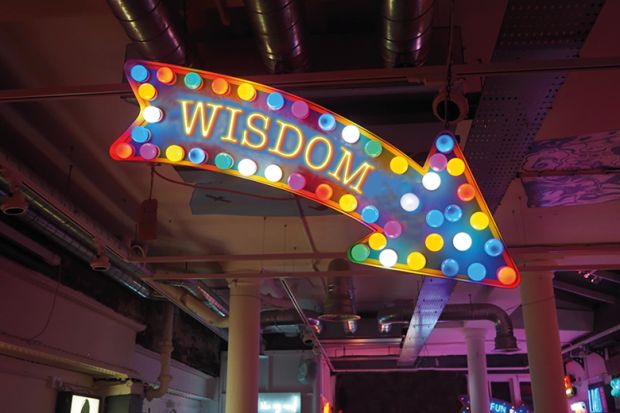Richard Branson is the king of the brand. Take a quick look at his social media and you’ll see what I mean.
The entrepreneur with the trademark beard posts regular updates reminding us of his personal success (walking barefoot on the coral sands of his private tropical island), his cachet among other people you admire (Barack Obama’s first holiday post-White House was with Branson), inspirational quotes (me neither) and, of course, lots about his corporate brand, Virgin.
A recent example of the last was a scribbled note apparently sent by a student thanking the company for teaching him about “why the Brand does what it does”. The capital letter is the author’s, not mine.
The note continues: “Virgin isn’t about business. It’s about changing the world and lighting shit up.”
Branson, needless to say, was delighted with this, although the student’s lecturers won’t be awarding top marks for critical analysis.
You might think that concepts such as branding have little or no place in higher education. But the truth is that universities have always had brands.
And Branson’s delight at his company’s being billed a world changer rather than a moneymaker underlines the point that universities occupy a space that commercial organisations would kill for.
So why doesn’t it feel like that at the moment? Why does it feel as though universities are taking beating after beating in the court of public opinion?
We seem to be stuck in a snowballing run of criticism: university leaders are overpaid and out of touch; academics are over-qualified and the public have had enough of experts anyway; universities are overflowing with cash extracted from impoverished students – yet they never stop complaining about impending penury.
These are just some of the narratives swirling around universities, and that’s just in England.
In Australia, they’re seen as oversubscribed and struggling to cope; in the US, the once-revered state institutions are overdrawn and on the wane, with a shaky commitment to freedom of speech; in Europe, they’re stagnating bureaucracies.
OK, some of this is over-egging the pudding. But universities are getting an increasingly rough ride, fuelled in part by the idea that they’re guilty of a cash grab at a time when everyone else has been tightening belts.
Stories about possible tuition fee hikes to plug the enormous hole in the Universities Superannuation Scheme do not help. The indebted young paying even more to fund other people’s final-salary pensions? Not a good look.
In our books pages, we carry a review of a new analysis of higher education, The Toxic University: Zombie Leadership, Academic Rock Stars and Neoliberal Ideology, which argues that this is not just a question of misperception – that universities have indeed been infected by the broader slide to speculative, consumer-driven financial capitalism that has come to dominate so widely.
Many in academia would share this unease about the changing nature of universities, about how they are managed and measured, and about the security of the values that underpin them.
But there are countless other stories that could be told about universities that have nothing to do with self-interest or neoliberalism and everything to do with their universal values and a steadfast commitment to education, knowledge and wisdom.
Our cover story offers one such counter-narrative. The University of Sheffield’s Advanced Manufacturing Research Centre is situated in Orgreave, scene of the infamous confrontation between police and miners during the painful demise of mass industrial employment in Britain in the early 1980s.
Today, the AMRC is at the cutting edge of engagement between research and industry, and just one of the many ways that Sheffield’s two universities make a profound and unique contribution to local, regional, national and global economic growth and prosperity.
Other universities across the world will be able to make similar cases. But it’s vital that these cases are made, and that what universities do and stand for is not buried by negativity.
If “lighting shit up” means transforming lives and changing the world then yes, universities do that. It’s not a branding exercise, it’s what they are. But as any branding guru will tell you, authenticity is the holy grail. They’ve got it – they need to find a way to flaunt it.
Register to continue
Why register?
- Registration is free and only takes a moment
- Once registered, you can read 3 articles a month
- Sign up for our newsletter
Subscribe
Or subscribe for unlimited access to:
- Unlimited access to news, views, insights & reviews
- Digital editions
- Digital access to THE’s university and college rankings analysis
Already registered or a current subscriber? Login
